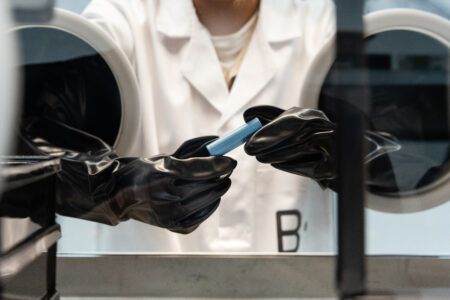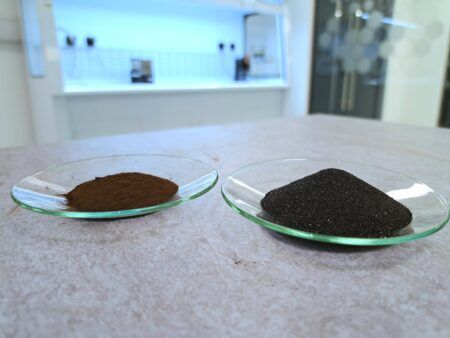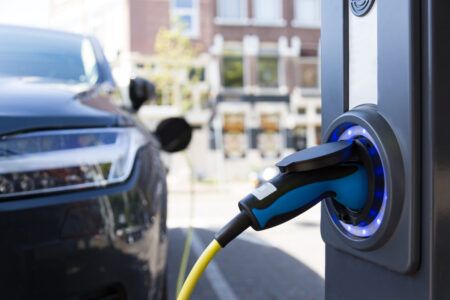As the drive to reduce dependency on fossil fuel elevates, so does the demand for batteries and the materials to produce them. Electric cars, power tools, heavy duty vehicles, grid and home batteries – the need is rising, all whilst raw materials for Lithium-ion batteries become more scarce or ethically troubling to extract.
Against this backdrop, Sweden-based battery science experts, Altris, has created a technology that utilizes low cost and readily available materials, and is safe, sustainable and with high power performance, energy-density and cycle life – all at a competitive cost
Fennac is the name of Altris’ groundbreaking cathode material. The material allows for the creation of reliable batteries from substances that are available in abundance: iron, air, seawater and wood. This means that Fennac contains no toxic substances, no conflict metals, have no geo-political sourcing issues and are very easy to recycle
Fennac claims its innovation will enable competitively priced battery technology, without compromising on sustainability, reliability or performance.
Lithium-ion batteries based on LFP (Lithium Iron Phosphate) as the cathode are seen as the main competitor to Fennac, since it is this technology that has fewer problems with raw-material scarcity than most, as well as the most power and best cycle-life.
Fennac batteries are currently stronger than LFP batteries on all key criteria, except cycle-life and price. Altris projects that by 2023, Fennac will outperform LFP on all criteria.
Most battery applications demand a mix of good performance in safety, energy-density, power, life-time cost and sustainability. This is a mix of features that neither lead-acid batteries (PbAc) or lithium-ion batteries (e.g. NMC, NCA and LFP) can deliver on. Altris’ cathode material Fennac can deliver on these needs and is currently sold to battery cell producers.
New applications of Fennac batteries require a new set of features and performance profiles for batteries. Altris’ focus for the use of Fennac batteries therefore is in industries that require a mix of good performance, sustainability and safety—which is the case for example in power tools, electric ferries and home/grid energy storage.





